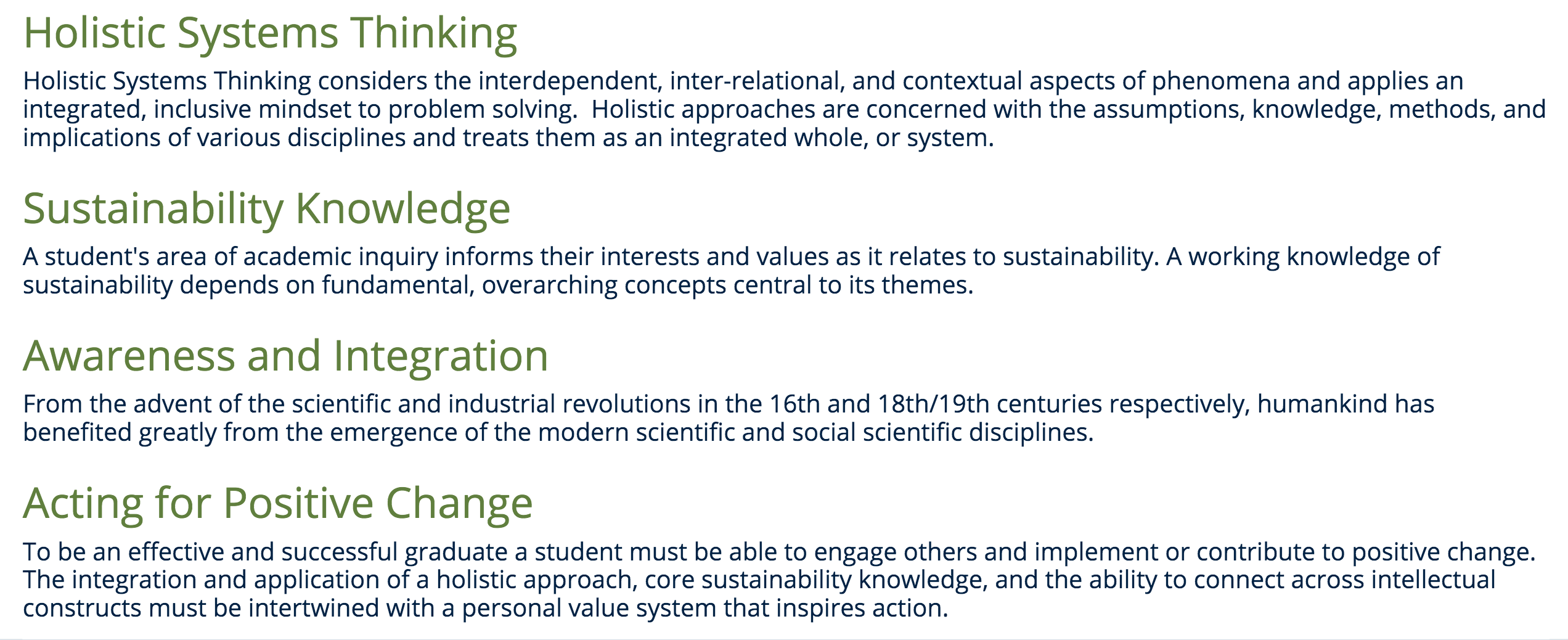Sustainability in current professional engineering practice can be thought of as a foundational concept (e.g. see the APEGBC Guidelines), and modern engineering education programs introduce the subject early in a student’s development.
For practicing engineers, the sustainability body of knowledge includes both disciplinary-specific, and broad, professional, concepts. The latter can include the application of systems thinking in design, conducting life-cycle assessments (LCAs), and the explicit consideration of long-term and indirect impacts when making any engineering decision. Examples of the former include work on carbon emission reduction (e.g. the development of fuel cell technologies), carbon capture and sequestration, integrated water management projects, and consideration of LCA data in construction material selection. No matter the discipline, complex sustainability problems (sometimes called “wicked sustainability problems”) challenge engineers to work in teams consisting of people with different backgrounds (i.e. “others”), who use different language and possess a variety of value sets.
UBC’s graduating student sustainability attributes are consistent with the concepts of sustainability in engineering education. As suggested in the previous paragraph, domain-specific sustainability knowledge learned during an engineering program of study will vary with engineering discipline. This disciplinary knowledge is augmented with the broader knowledge described in the UBC sustainability attributes:

